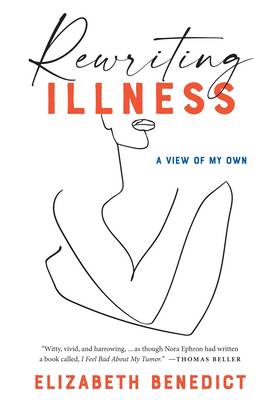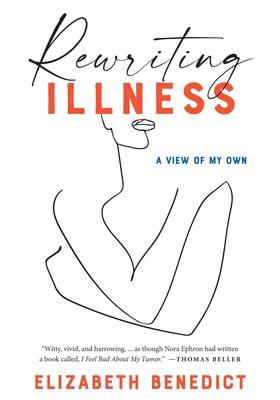
- Afhalen na 1 uur in een winkel met voorraad
- Gratis thuislevering in België vanaf € 30
- Ruim aanbod met 7 miljoen producten
- Afhalen na 1 uur in een winkel met voorraad
- Gratis thuislevering in België vanaf € 30
- Ruim aanbod met 7 miljoen producten
Zoeken
Omschrijving
By turns somber and funny but above all provocative, Elizabeth Benedict's Rewriting Illness: A View of My Own is a most unconventional memoir. With wisdom, self-effacing wit, and the story-telling skills of a seasoned novelist, she brings to life her cancer diagnosis and committed hypochondria. As she discovers multiplying lumps in her armpit, she describes her initial terror, interspersed with moments of self-mocking levity as she indulges in "natural remedies," among them chanting Tibetan mantras, drinking shots of wheat grass, and finding medicinal properties in chocolate babka. She tracks the progression of her illness from muddled diagnosis to debilitating treatment as she gathers sustenance from her family and an assortment of urbane, ironic friends, including her fearless "cancer guru." In brief, explosive chapters with startling titles - "Was it the Krazy Glue?" and "Not Everything Scares the Shit out of Me" - Benedict investigates existential questions: Is there a cancer personality? Can trauma be passed on generationally? Can cancer be stripped of its warlike metaphors? How do doctors' own fears influence their comments to patients? Is there a gendered response to illness? Why isn't illness one of literature's great subjects? And delving into her own history, she wonders if having had children would have changed her life as a writer and hypochondriac. Post diagnosis, Benedict asks, "Which fear is worse: the fear of knowing or the reality of knowing? (164)"Throughout, Benedict's humor, wisdom, and warmth jacket her fears, which are personal, political, and ultimately global, when the world is pitched into a pandemic. Amid weighty concerns and her all-consuming obsession with illness, her story is filled with suspense, secrets, and even the unexpected solace of silence.
Specificaties
Betrokkenen
- Auteur(s):
- Uitgeverij:
Inhoud
- Aantal bladzijden:
- 216
- Taal:
- Engels
Eigenschappen
- Productcode (EAN):
- 9781942134916
- Verschijningsdatum:
- 23/05/2023
- Uitvoering:
- Paperback
- Formaat:
- Trade paperback (VS)
- Afmetingen:
- 150 mm x 226 mm
- Gewicht:
- 340 g

Alleen bij Standaard Boekhandel
+ 60 punten op je klantenkaart van Standaard Boekhandel
Beoordelingen
We publiceren alleen reviews die voldoen aan de voorwaarden voor reviews. Bekijk onze voorwaarden voor reviews.











